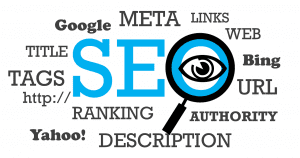 I’ve been in the digital marketing industry for a long time, and I’ve seen a lot change throughout the years. One aspect that has gotten better is the general understanding of what digital marketing is and how it can be used to achieve online goals.
I’ve been in the digital marketing industry for a long time, and I’ve seen a lot change throughout the years. One aspect that has gotten better is the general understanding of what digital marketing is and how it can be used to achieve online goals.
SEO, or search engine optimization, is a great example. Ten years ago when I was working at a digital agency and I met with a typical client (who was usually the company owner), they had heard of the term “SEO” but didn’t know what it meant. Today, I feel that many business owners know that SEO has to do with making more people visit your website from a search engine, and that having good content is an important part of your SEO strategy.
What comes after that? If you’re in such a place, here is what I would suggest for you to think about if you want to start getting a better understanding of SEO for your publication’s website.
Keywords: How People Discover Your Website
When you visit a search engine like Google, Bing or one of many others, you type a subject into the search bar. For example, if you go to YouTube and want to watch the video for Michael Jackson’s “Thriller”, you may type in “Thriller by Michael Jackson” in the search bar.
That may be how you look for the “Thriller” video, but someone else may type in “Thriller video”. A third person uses the words “Thriller music video” because they remember that the album the song comes from is also called “Thriller”.
The different ways people search for videos on YouTube works along the same principle as when people search for web pages. These phrases, “Michael Jackson’s Thriller”, “thriller music video” and so on, are called keywords.
What you want to happen is for people to find the content on your website from keyword searches. Generally speaking, the more page views on your website, the greater the opportunity to turn that one-time visitor into a repeat visitor (or even better, a new subscriber).
Having the Right Keywords on Your Page
You want to have the right keywords on landing pages based on your publication’s subject matter. A landing page is a webpage where a visitor first experiences your website.
Let’s say that you publish a periodical featuring short mystery stories. You may have entire stories published on many different pages on your website, and they might all have a lot of original content. However, unless the person using the search engine knows what the author’s name or title of the story is, it may be very difficult to bring in new visitors looking for mysteries.
Your About Us page may be an ideal place for people entering the keywords “new mystery short stories”. If you have that phrase on your About Us page, the search engine will likely display that About Us page in the search engine results page.
The person using the search engine sees your About Us page in their results, reads the description and thinks, “This sounds like what I’m looking for.” They click on the link and voila, you have a new person exposed to your brand, and the opportunity to turn them into a new reader.
You’re not limited to a specific number of pages on your website, but it’s a good strategy to give a focus to a certain keyword match for one webpage. In the case I just mentioned, maybe you want to bring people searching for “best Canadian mystery stories” to your website and expose them to your mystery publication. Maybe it’s a certain kind of mystery story too, like “cozy mysteries” or “detective noir mysteries”. Your options are wide, but it’s better to try and stick to one main idea for your focus keyword.
The Christmas Tree Approach to SEO
You may be thinking that because you have a lot of web pages on your website, you have an opportunity to focus on a lot of different keywords. Yes, in a way you do, but start off by thinking of the big picture before spending time on the smaller stuff.
Getting back to that mystery publication’s website, let’s say that they are publishing great original fiction by B.C.’s best mystery writers. The keywords on their Homepage should be focused on the wider search terms which could be something like “Canadian mystery stories” or even more focused like “B.C. mystery fiction”. Ultimately, your choice of specific keywords should be based upon:
- Who your target audience is
- What search words bring your website the most traffic now
- What other sorts of keywords could bring website traffic to your site
Put another way, maybe you don’t want to optimize your website for mystery stories for a global audience (“the world’s best mystery stories”). Maybe there’s too much competition already out there.
Think of this strategy like the way a Christmas tree is decorated: the star is at the top followed by the ornaments, and then there’s garland or ribbons on the tree branches. The same approach works for your website’s content:
- Your Homepage is your star at the top of the tree (“new Canadian mystery stories”)
- Your ornaments are pages which can attract decent search volumes (“2018’s best Canadian mystery stories”, “award-winning mystery fiction”).
- Your ribbons and tree garlands are the many individual pages devoted to a specific subject (“New Crime Fiction by Vicki Delany”, “‘Left For Dead’, a True Crime Story set in Vancouver”)
Start Small Before Going Big
Work on improving the traffic volume for a handful of your website’s pages first before trying to do all of them. It works better when you can see some sort of results come in from your SEO efforts.
Some keywords will be harder to get traffic for than others. It depends on your niche, the amount of competition that already exists online, the number of inbound links that your competitors have, and other factors. Right now you’re just starting off learning the basics, but already you have a better understanding of SEO than a lot of website owners do.
You can discover how people find your website if you have Google Analytics and look at the keyword search terms, or by using Google Keyword Planner. Both are free tools. Google Analytics doesn’t take long to put on your website and it can provide a lot of useful data. These strong keywords that already exist on your website could be levered to bring in even more traffic.
Down the road, you can also research and discover new keywords that can attract potential readers and future customers. There are software tools that allow you to do this. If this is a new area for you, I would advise starting off slow and dipping your toes into the world of SEO by looking at your analytics data first.
Doing More with SEO
Understanding what keywords are and how to use good keywords to increase your website’s traffic with targeted users is the foundation to SEO. The website for a magazine or publisher has a lot of content that they can draw from. By understanding how keywords work and identifying the keywords that are already naturally working for your website, you can attract more site visitors that are interested in what you’re talking about.
Remember: slow and steady can win the SEO race!
— Patrick Sauriol, Digital Marketing Consultant, Corona Productions
LinkedIn | patrick@coronaproductions.com















